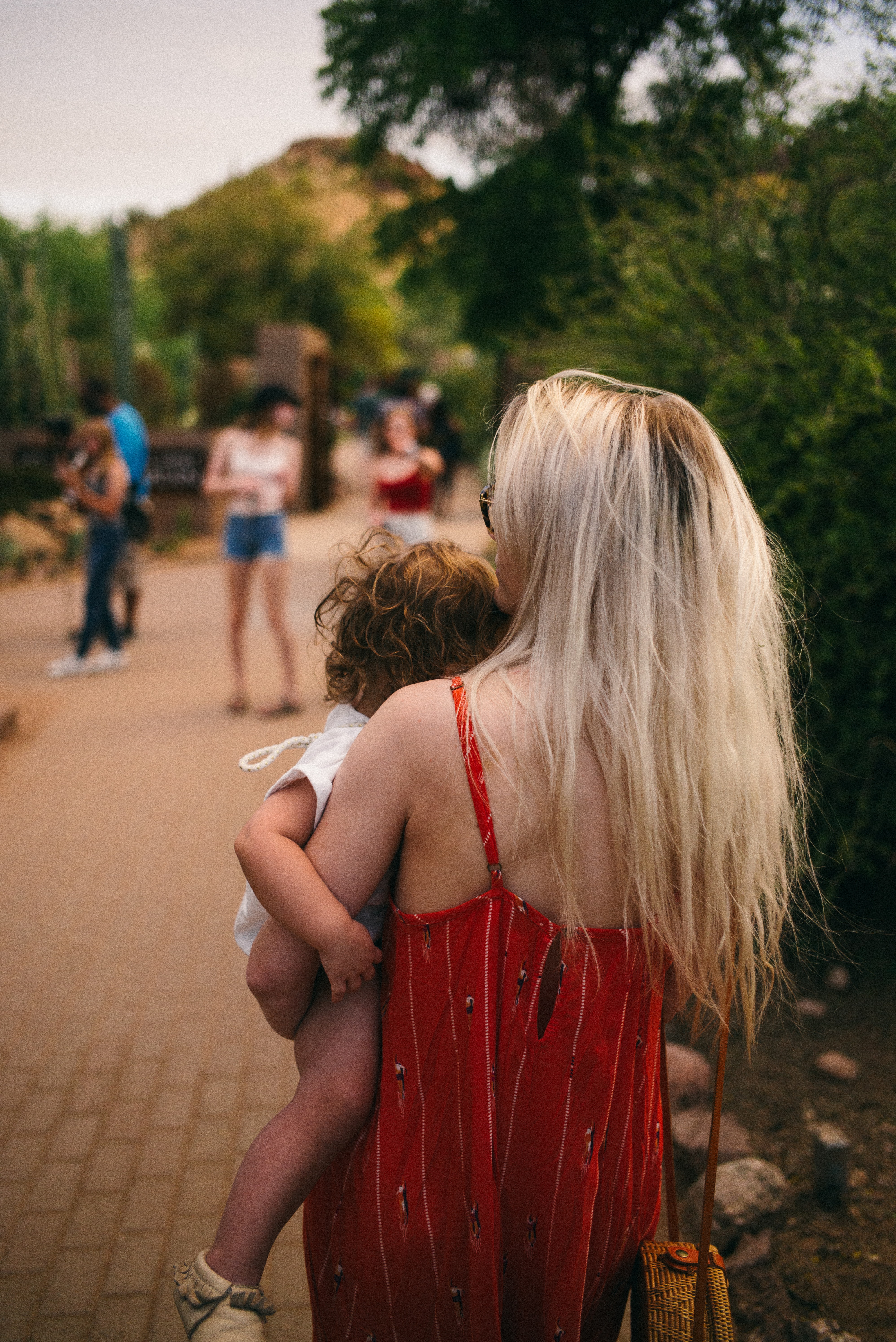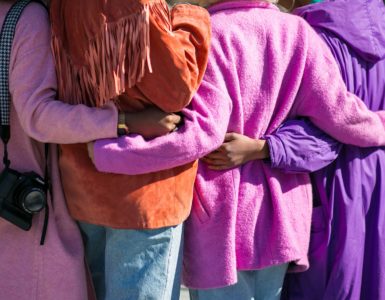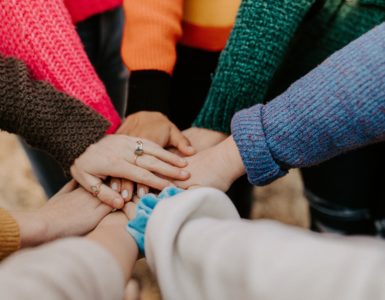When I first began my adoption journey, I didn’t realize that there are times that parenting adoptive children is different than it was for my biological child. I thought that parenting was parenting, an equal opportunity event that would be the same whether my child was biological or adopted. That isn’t exactly true.
The truth is, sometimes things come up in adoption that make parenting very different. Trauma would be the number one thing that I think needs to be considered. All adoptions begin with trauma, whether we want to admit that or not. I will be honest and say that I thought that one of my children did not have a traumatic past because I began parenting him at birth. I was wrong. Being separated from his birth mother is trauma. He may not have a conscious memory of the trauma, but his brain and body remember.
My other child was neglected as a toddler. I knew he had a trauma-based past. His trauma is more significant and caused more complications in his brain’s development.
While traditional parenting may work in some families with adopted children, many families who adopt need to seek out methods that are trauma-based for their children.
My older son has an attachment disorder. I read articles and books regularly to try to learn the best ways to parent him. His traumatic past makes traditional methods of parenting useless.
Most kids respond well to praise and positive feedback. Of my three children, I can use praise as a parenting technique for only two of them. My son, when given praise I can give to my other kids, responds with extreme negativity. It sounds crazy, I know. I can assure you that it makes me feel crazy too. When he does something deserving of praise, I must give him positive feedback in a very nonchalant way. “Cool, high five.” I must keep my voice even and not give away my joy.
My other child suffers from anxiety. I need to overemphasize my joy when praising him. “Oh my gosh, I LOVE what you did here! This is just wonderful!” He needs a lot of hugs and a lot of reassurance. He thrives on hugs and validation.
Parenting this way is extremely difficult. I am not always successful. It feels almost impossible to parent without emotions with one child (the recommended way to handle a child who suffers from his type of attachment disorder) and be emotional with the others.
In parenting any child, there will be times when your child is unhappy with you. After all, parenting isn’t all sunshine and rainbows. During these times, an adopted child may say or think hurtful things. “You aren’t my mother.” This is a phrase most adoptive mothers fear hearing from their children. Another awful word we dread, “real.” “You aren’t my REAL parents.” This is incredibly hurtful to hear when you are a parent.
I never had to fear those words from my biological child. Sadly, I have heard this from one of my kids. In the heat of the moment, it is difficult to not respond angrily. Being prepared for these moments is essential to not make the situation worse by responding in anger because while you can apologize, any words you say are said and cannot be taken back. It is important to think about how to respond should this type of situation arise.
Children who are adopted may feel left out if they don’t share the same talents or abilities that seem to “run in the family.” For example, if most of the family is musical, whether playing instruments or singing, and the child struggles with learning music or isn’t interested, they may feel left out and like they don’t belong. While these types of situations can occur in biological families as well, when they happen within adoption they often feel more significant to those involved.
Children may also wonder about their talents and where they are from. When parenting in an adoptive situation, kids will have questions about their birth family. They may wonder who they resemble and if any of their birth family enjoyed the same hobbies that they do. If the adoption is closed (which is less common now, as open adoptions become more accepted), you may not be able to answer these questions. If you have an open or semi-open adoption, you may be able to spend some time learning about their biological history and family together. This can be hard for some parents but it is important to remember that a child needs answers to their questions. Learning about birth family does not make you any less of a family. It may strengthen your bonds.
When parenting adopted children, people sometimes feel they need to make a distinction between adopted and biological children (or if there are no biological children, they may still refer to your child as your adopted child). As a parent, I feel my blood boil whenever someone uses the word “adopted” when speaking about my boys. They are my children. They joined our family through adoption (an action taken/verb). My children should not be referred to as our adopted children (descriptive word/adjective). Adoption is a verb, not an adjective.
Somehow, when you adopt, you become an educator to the public around you. You will hear people say inappropriate things or use inappropriate phrases that you may not have noticed before adopting. But once you adopt, you will notice and find yourself correcting those around you. Oftentimes, people do not even realize that what they have said is offensive or inappropriate.
As I have stated, I have two boys that joined our family through adoption. I have had total strangers ask me if they are brothers. I always answer that of course they are brothers. That answer is often not enough, and they will continue with questions like are they “real” brothers, or are they from the same family, etc. It can be very frustrating because as my children hear people question their relationship to each other, it plants the seed of doubt into their minds about whether they are, in fact, brothers. I have to explain to people how their line of questions is inappropriate and how I am their mom, which makes them actual brothers. Can you imagine?
I have found that doctor appointments are extremely difficult when parenting in adoption. The medical history may be unknown for a child’s birth family. Many forms do not take into consideration that a child may be adopted and that you may be unable to answer many questions.
On the flip side, I have also found myself answering the questions, just to realize that genetically my answers on the forms didn’t apply. The forms aren’t interested in my parents’ (as grandparents) health, as it cannot be passed to my children. I sometimes have to laugh when I catch myself forgetting these things and have to start over.
Sadly, I have found that within the medical profession, doctors can also be very insensitive with how they handle adoption. I have had many physicians as me about “real parents” medical history, or refer to birth parents as “mom” and “dad.” I try to kindly remind them that I am Mom and my husband is Dad, usually with a little humor. I will usually answer the question for myself and then say, “Oh, did you mean biological mom and dad?” Again, these moments are difficult because your child is right there hearing these missteps, which chip away at the idea that you are, indeed, family.
What are some other parenting differences for adoptive families?
Adoptive families don’t always have the same pre-baby moments that biological families have. No one wonders if the child will resemble you or your spouse. Often, there is no time for baby showers, or if there is, nobody thinks to host one given the different circumstances. If you are adopting a baby, there is the fear that biological parents may change their minds after birth. Because of this fear, those around you may hesitate to acknowledge your new addition until the courts have finalized the adoption. It is a scary time for everyone involved and something biological families cannot truly understand. As adoptive parents, you have no idea what the prenatal situation was and whether the biological mother exposed your child to any harmful situations.
Adoption is not always the adoption of infants. You may choose to adopt an older child. In this case, unlike with infants, rarely are people doting on the child, buying them cute clothing and gifts like they do when babies arrive.
Adoption can be expensive. While having a biological child comes with medical expenses, often domestic or international adoptions come with many more expenses than just medical. There may be agency fees, travel fees, paperwork and home study costs, and attorney fees to name a few. Adoption costs can far surpass the typical costs of birthing a baby. Sometimes, families must fundraise, take money from retirement funds, sell their homes, and pinch pennies to pay the costs involved with adopting. The financial burden may be too much for some and they may be unable to pursue expanding their family.
On a more positive note, when faced with an open adoption, a significant difference in parenting is that you not only gain a child but often an extended family too. Your family may grow with the addition of your child’s birth parents, maybe their siblings and parents too. You may add a whole extended family to yours to share in the ups and downs of parenting this child. This extension of the family may serve as a support system and source of valuable information you wouldn’t have access to if the adoption were closed.
I have one very open adoption and one that is semi-closed (for safety reasons).
I love that when I have a medical question I can call upon my son’s birth family for answers. Is there a history of appendicitis? Has anyone in the family had any significant allergies to foods or medications? Are there any cancers or other diseases I should make a note of? All of these are things that you can find out.
I also love that with open adoption, my child can see where he gets his curly hair from (his birth mother shares his beautiful dark curls). He looks nothing like me, but he has picked up some of my mannerisms and mimics me without knowing it. My kids also definitely have my husband’s witty sense of humor.
Some of what makes your child who they are will be genetic. Their eye color, hair color, and medical history are all things that come from their biological family.
Some of what makes your child who they are will be from nurture. The things you teach them as children will come from you as well as their love of things that you share with them. For example, we instilled in our children our love of animals and vacations to Disney World.
It’s interesting to notice the nature vs nurture moments with my children. I try to note when I notice and share it with them during appropriate moments. I think they enjoy knowing how they are a wonderful combination of all of us. It is wonderful to see how we are all connected, whether through genetics or love.
I often tell my children that love makes people family. Not everyone in a family is a relative. And sometimes, not every relative is part of your family. And that is okay.




